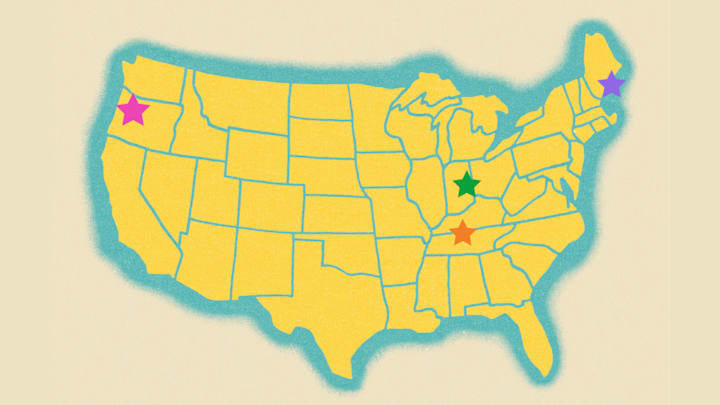At various points in history, people in Oregon, Maine, and a number of other states asked themselves the following question: What should we call the land around the port? And the answer was simply “Portland.”
You can decide for yourself whether that reflects an admirable utilitarian sensibility or a shameful lack of creativity. What isn’t up for debate is how common the trend is.
There are 17 Portlands in the U.S., two each in Wisconsin and Colorado. Not all of them are technically named due to the presence of a port; Indiana’s Portland, for example, is literally just named after Portland, Maine. There are 15 Parises (again, two in Wisconsin) and 12 Wyomings, including the state itself (yet again, two are in Wisconsin).
In many cases, context clues will tell you which duplicate someone’s talking about. When a new acquaintance you meet in Manhattan says they live in Brooklyn, they almost definitely mean the borough right across the East River, rather than any of the country’s other dozen or so Brooklyns (three of which are in Wisconsin).
But it’s not always quite that clear—so The Pudding’s Russell Samora, with help from Michelle McGhee, developed an interactive map to help you. Type in a place name, and the map will show you all the U.S. locales with that name, identifying which one is most likely to be referenced in any given county. Those probabilities are determined by three factors: proximity to the place, the place’s population, and the length of the place’s Wikipedia page, the last of which adds “an extra layer of nuance for the cultural importance/awareness of places that may not have a large population,” the site explains.
Places outside the U.S. are included when relevant. Enter Pluto, for example, and the map will show you a red radius around Pluto, West Virginia. Within that radius, a mention of Pluto most likely refers to the West Virginia spot. But beyond the circle, you’re probably dealing with Pluto the dwarf planet.
The creators specify that the tool’s conclusions aren’t set in stone. “Please note that this is a very opinionated take on answering this question. Consider it a conversation starter, not ender,” the site reads. You can even submit feedback to help them expand or improve their location feedback.
Learn more and explore the map for yourself here.
